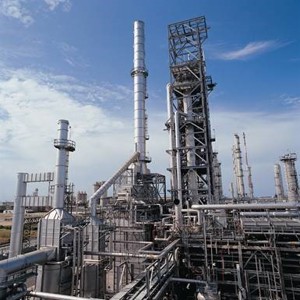Fuji Oil using new Honeywell UOP catalyst to increase production of aromatics
DES PLAINES, Ill., /PRNewswire/ -- Honeywell announced that Fuji Oil Co., Ltd. has begun using Honeywell UOP's new R-364 Platforming™ catalyst to produce more aromatics for chemical production at its Sodegaura Refinery on Tokyo Bay in Chiba Prefecture, Japan.

The R-364 catalyst converts naphtha feedstock into aromatics, which are used to make petrochemical
"We count on UOP to develop new catalysts that improve our economics," said Daiki Imai, General Manager of Operation Management Department for Fuji Oil. "The R-364 catalyst is a drop-in replacement catalyst that effectively increases our capacity and flexibility."
"Fuji Oil selected the R-364 catalyst because it can increase the refinery's production of aromatics by boosting
Demand for gasoline in Japan has been declining since reaching a peak in 2004. Japanese refiners such as Fuji Oil have turned to
Honeywell UOP introduced the R-364 catalyst in 2017. It retains all the properties of the previous R-264 catalyst, but with better activity and lower coke production, which improves the efficiency of catalytic reactions. As a result, the R-364 catalyst is a drop-in replacement for the R-264 catalyst that increases yields of gasoline, aromatics
The CCR Platforming process is a continuous catalytic reforming process used throughout the petroleum industry to convert low-quality naphtha into blending stocks for gasoline, aromatics for plastics production and high-purity hydrogen. The CCR Platforming process is in operation at more than 250 customer sites.






Comments